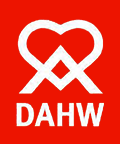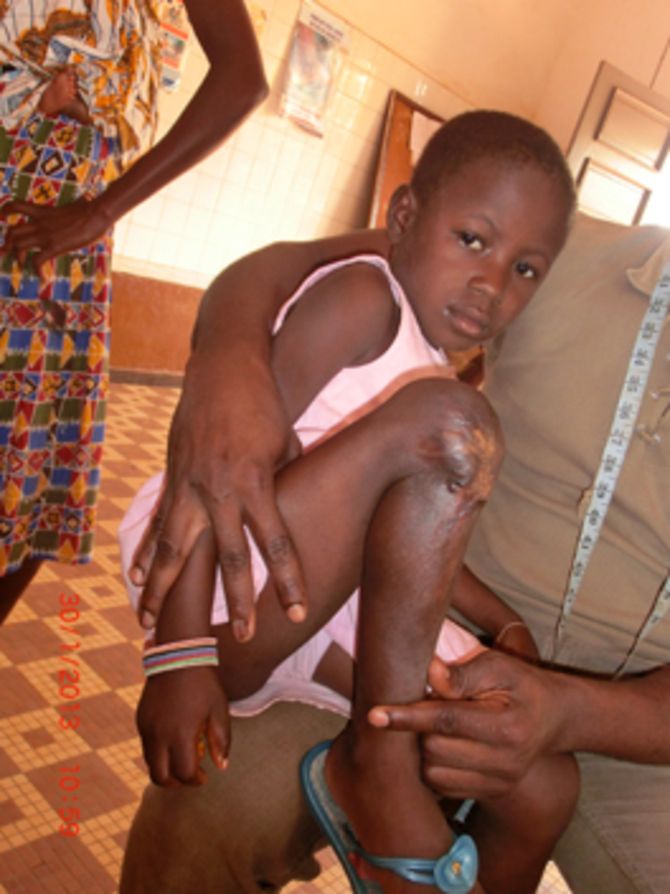Buruli Ulcer affects children above all: around 70 % of all patients are under 15. Reason enough for Franz Wiedemann, the DAHW representative in Togo, to concern himself with this disease in addition to leprosy and tuberculosis. DAHW has been supporting the national Buruli programme since 2006. Up until then it had virtually only existed on paper.
Just two years later the then Federal German Minister of Foreign Affairs, Frank-Walter Steinmeier and the Togolese Minister of Health, Kondi Charles Agba opened the Buruli Competence Centre in Tsévié where the most severely sick Buruli patients receive medical treatment.
If a patient is discovered too late the only option is operations and skin transplants; often amputations are necessary. However, if the disease is discovered in time, it can be healed completely and there are no long-term effects. As is the case with leprosy, there are DAHW health assistants travelling around all districts in Togo to provide explanations to people, to diagnose suspected cases and to initiate treatment as fast as possible. They are the key element both in terms of care and the project work.
Until now, at the Tsévié Buruli Centre samples of tissue were removed from the victims on the spot and sent to Germany for laboratory diagnosis. For a long time there was no laboratory in Togo capable of performing the PCR test, a genetic analysis enabling Buruli to be diagnosed conclusively. The result was not available for five to six weeks. This unnecessarily long wait also delayed the start of treatment for many patients.
Together with partners from the Ludwig-Maximilians University in Munich (LMU) and from the Bernhard-Nocht Institute in Hamburg (BNI) and also with the European BuruliVac research project, Franz Wiedemann has succeeded in setting up an appropriate laboratory in Togo. Today the PCR diagnosis only takes seven days.
As in many other African countries Togo has too few doctors, surgeons and psychologists. They migrate to other countries because they can earn more money there. This poor country simply hasn’t the funds to pay doctors appropriately.
“Our greatest problem at the moment is mobility,” Wiedemann says. “Without motorbikes and cars we cannot find and treat patients soon enough.” In the course of the next two years DAHW in Togo will require 41 motorbikes and 5 new motor vehicles.
The DAHW staff will be faced with another challenge in 2013: The ancient, almost forgotten disease known as Yaws. “It reveals itself by a bad rash on the face and hands” Wiedemann recounts. “Luckily this bacterial infection is relatively easy to heal by means of antibiotics.” It is spread through contact with people who are already infected. In view of the good chances of it healing fast it seems almost harmless compared to Buruli Ulcer and leprosy.



